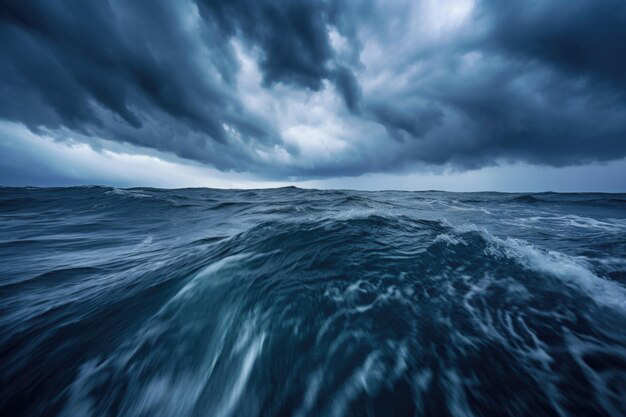W.B. Yeats | Poems |
In this blog, we'll delve into the Thinking activity task focused on W.B. Yeats' poems from Twentieth Century literature. Specifically, we'll analyze two poems - "On Being Asked for a War Poem." and "The Second Coming".
On Being Asked for a War Poem
I think it better that in times like these
A poet's mouth be silent, for in truth
We have no gift to set a statesman right;
He has had enough of meddling who can please
A young girl in the indolence of her youth,
Or an old man upon a winter’s night.
Let's dive into this beautiful poem, shall we? Imagine the scene: a world in turmoil, perhaps like a stormy sea. In these rough times, the speaker, our poet, suggests it might be best to hush their voice.
Line 1 & 2: Silence Speaks Volumes
I think it better that in times like these / A poet's mouth be silent, for in truth...
Think of it like this. When the waves crash loud, sometimes the most powerful message is found in the quiet spaces between them. The poet acknowledges that their words, however beautiful, might not hold the answers to fix the grand problems facing the leaders.
Line 3 & 4: Beyond the Politician's Scope
We have no gift to set a statesman right; / He has had enough of meddling who can please...
Here's the thing: politicians deal in the grand schemes, the logic and reason. But sometimes, in the face of chaos, what's needed is a different kind of touch. A gentle hand to soothe a worried young girl, or a comforting voice for an old man facing a long winter night.
Line 5 & 6: Poetry's True Power
A young girl in the indolence of her youth, / Or an old man upon a winter’s night.
That's where the poet's gift truly shines. Their words might not sway leaders, but they can offer solace, a spark of beauty in the darkness. They can weave stories that remind us of what's precious, of the quiet moments that make life worth living even in the stormiest of times.
So, the poem isn't advocating for silence completely. It's about understanding the power of words, choosing when to speak for grand solutions, and when to offer a gentler touch, a reminder of the simple things that bind us together even in the midst of chaos.
THE SECOND COMING
Turning and turning in the widening gyre
The falcon cannot hear the falconer;
Things fall apart; the centre cannot hold;
Mere anarchy is loosed upon the world,
The blood-dimmed tide is loosed, and everywhere
The ceremony of innocence is drowned;
The best lack all conviction, while the worst
Are full of passionate intensity.
Surely some revelation is at hand;
Surely the Second Coming is at hand.
The Second Coming! Hardly are those words out
When a vast image out of Spiritus Mundi
Troubles my sight: somewhere in sands of the desert
A shape with lion body and the head of a man,
A gaze blank and pitiless as the sun,
Is moving its slow thighs, while all about it
Reel shadows of the indignant desert birds.
The darkness drops again; but now I know
That twenty centuries of stony sleep
Were vexed to nightmare by a rocking cradle,
And what rough beast, its hour come round at last,
Slouches towards Bethlehem to be born?
The world in Yeats' poem spins like a lost kite, tangled in a wild wind. Think of a majestic hawk soaring high, suddenly cut loose, unable to hear its keeper's frantic calls. This image mirrors the poem's opening lines, where order unravels ("Things fall apart") and chaos reigns ("mere anarchy").
Picture a furious river flooding its banks, its waters stained red ("blood-dimmed tide"), washing away all innocence. The old ways, once cherished rituals ("the ceremony of innocence"), drown in the swirling mess. The good people, their faith shaken, stand unsure ("The best lack all conviction"), while the bad ones, eyes burning with wild intensity ("passionate intensity"), flourish in the mayhem.
But in the midst of this darkness, a whisper of hope flickers. The speaker murmurs, "Surely some big change is coming soon; Surely the Second Coming is near." Could it be the return of a hero, someone to bring things back to right?
However, the vision that emerges from the "Spiritus Mundi," the world's very spirit, is far from a shining knight. Imagine a vast desert, its golden sands stretching under a blazing sun. In the distance, a giant creature rises, half-lion, half-man, its eyes like burning embers ("blank and pitiless as the sun"). This monstrous "rough beast," awakened from a sleep older than time itself, slowly walks towards Bethlehem, the birthplace of hope, its purpose a chilling mystery.
Yeats weaves these scenes with simple, yet powerful images. The lost hawk's cry echoes the world's lost direction. The red-stained river paints a raw picture of violence. The creature's empty stare sends shivers down your spine. Through these vivid scenes, he leaves us with a haunting question: is this monstrous figure the awaited savior, or a bringer of even greater darkness?
A very creative explanation of the poem "The Second Coming" by William Butler Yeats on YouTube channel 'TED-ED'










Comments
Post a Comment